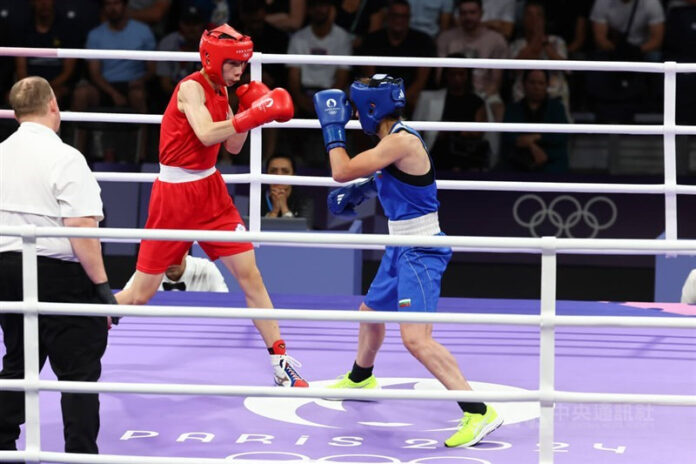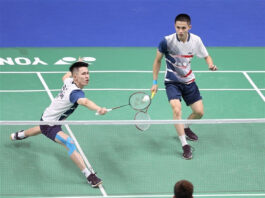In a sweeping and controversial move, World Boxing, the organization seeking Olympic recognition amid tensions with the International Boxing Association (IBA), announced on May 30 that mandatory sex verification testing will begin for all registered athletes aged 18 and above starting July 1, 2025.
The policy, which World Boxing claims is designed to ensure fairness in the sport, will require PCR testing for the presence or absence of Y chromosomes — a measure that will determine an athlete’s eligibility for the women’s or men’s divisions based strictly on sex assigned at birth.
🔬 Details of the New Testing Policy
- Test Type: PCR analysis detecting Y chromosomes.
- Who Must Comply: All boxers aged 18+ competing in World Boxing-sanctioned events.
- Enforcement Date: Starts July 1, 2025.
- Consequences: Athletes who refuse testing or fail to provide results will be barred from competition, including Olympic qualifiers.
According to the released guidelines, only individuals with XX chromosomes (and who are not androgenized DSDs) will be allowed to compete in the women’s division. All others — including athletes with Y chromosomes or certain intersex traits — will be required to compete in the men’s division.
🚨 Why Is This Policy Controversial?
The ruling echoes growing global disputes over gender and fairness in sports. While World Boxing insists the rule is about preserving athlete safety and fair play, critics argue it violates athletes’ privacy, autonomy, and human rights.
Human rights groups, LGBTQ+ advocacy organizations, and some sports scientists have condemned the rule as invasive and discriminatory, noting the reliance on chromosomal sex oversimplifies the complexity of human biology, gender identity, and hormonal variance.
Furthermore, this decision may contradict IOC’s 2021 framework, which advised that testosterone levels and performance metrics, not chromosome testing, should guide eligibility.
🧠 Background: Why Now?
This change comes on the heels of high-profile controversies, including:
- Imane Khelif (Algeria) and Lin Yu-Ting (Taiwan), both disqualified by IBA from the 2023 Women’s World Boxing Championships after failing undisclosed “sex verification protocols.”
- Both were later cleared to compete by the International Olympic Committee (IOC) but remained targets of political criticism — particularly from former U.S. President Donald Trump, who mischaracterized both as “transgender athletes” during campaign rallies.
- Trump’s executive order titled “Keeping Men Out of Women’s Sports” is believed to have influenced policies at organizations like World Boxing that seek U.S. support and Olympic legitimacy.
🌐 The Bigger Picture: Power Struggles in Global Boxing Governance
World Boxing’s announcement also appears politically motivated.
- The organization is in a fierce battle with the International Boxing Association (IBA), which was suspended by the IOC due to alleged corruption, mismanagement, and doping issues.
- With the 2028 Los Angeles Olympics on the horizon, World Boxing is positioning itself as the rightful governing body for Olympic boxing and is attempting to align with U.S. political sentiment to gain backing.
World Boxing’s spokesperson stated the goal was to create a “science-based, transparent policy that aligns with global legal and biological standards,” adding that “this is about protecting women’s boxing and its future.”
🔍 Key Implications and Analysis
🔑 1. What Happens to Intersex and Trans Athletes?
This rule would effectively ban transgender women and many DSD (Differences of Sexual Development) athletes from competing in the women’s division — unless they have no Y chromosomes and are deemed “non-androgenized.”
This includes conditions like Androgen Insensitivity Syndrome (AIS), where an individual may have XY chromosomes but does not respond to testosterone — a key dispute in prior Olympic cases.
🏛️ 2. Legal Consequences: Potential Human Rights Challenges
Legal experts suggest this policy could face legal action in Europe and North America, where privacy and anti-discrimination laws are stronger. Any athlete barred due to genetic traits they cannot control may be entitled to challenge this under human rights statutes or sports arbitration tribunals.
🤝 3. Impact on National Federations
All national federations affiliated with World Boxing must conduct and certify sex testing results. Countries that refuse risk suspension or removal from international events — creating logistical and ethical burdens for local sports authorities.
Some federations, especially in Western Europe and Canada, may find themselves in a bind: choosing between compliance with the rule or adhering to their national anti-discrimination laws.
🧬 4. Science vs Policy: Oversimplification of Biology
While chromosome testing may seem objective, many scientists argue this policy ignores:
- Hormonal influence on muscle development
- Training history
- Genetic variability even within cisgender populations
- The role of androgens pre- and post-puberty
Instead, critics say a more nuanced, case-by-case evaluation would be both fairer and more scientifically sound.
❓ FAQs
What is World Boxing?
World Boxing is an emerging international governing body for amateur boxing that seeks IOC recognition, in contrast to the suspended International Boxing Association (IBA).
What is sex verification testing?
Sex verification testing is the process of determining an athlete’s biological sex, in this case using PCR tests to detect the presence or absence of Y chromosomes.
Who will be affected by this new policy?
Transgender women, intersex athletes with Y chromosomes, and those with certain DSD conditions will be ineligible for the women’s division under this policy.
Is this rule endorsed by the IOC?
Not yet. The IOC currently recommends performance-based metrics and warns against intrusive medical testing unless necessary. The IOC’s framework allows for inclusion with fairness, focusing on testosterone levels and sport-specific research.
Can national federations refuse to follow this policy?
They can, but they may face suspension from World Boxing events or Olympic qualifiers. Legal resistance is expected, especially in regions with strong civil rights protections.



